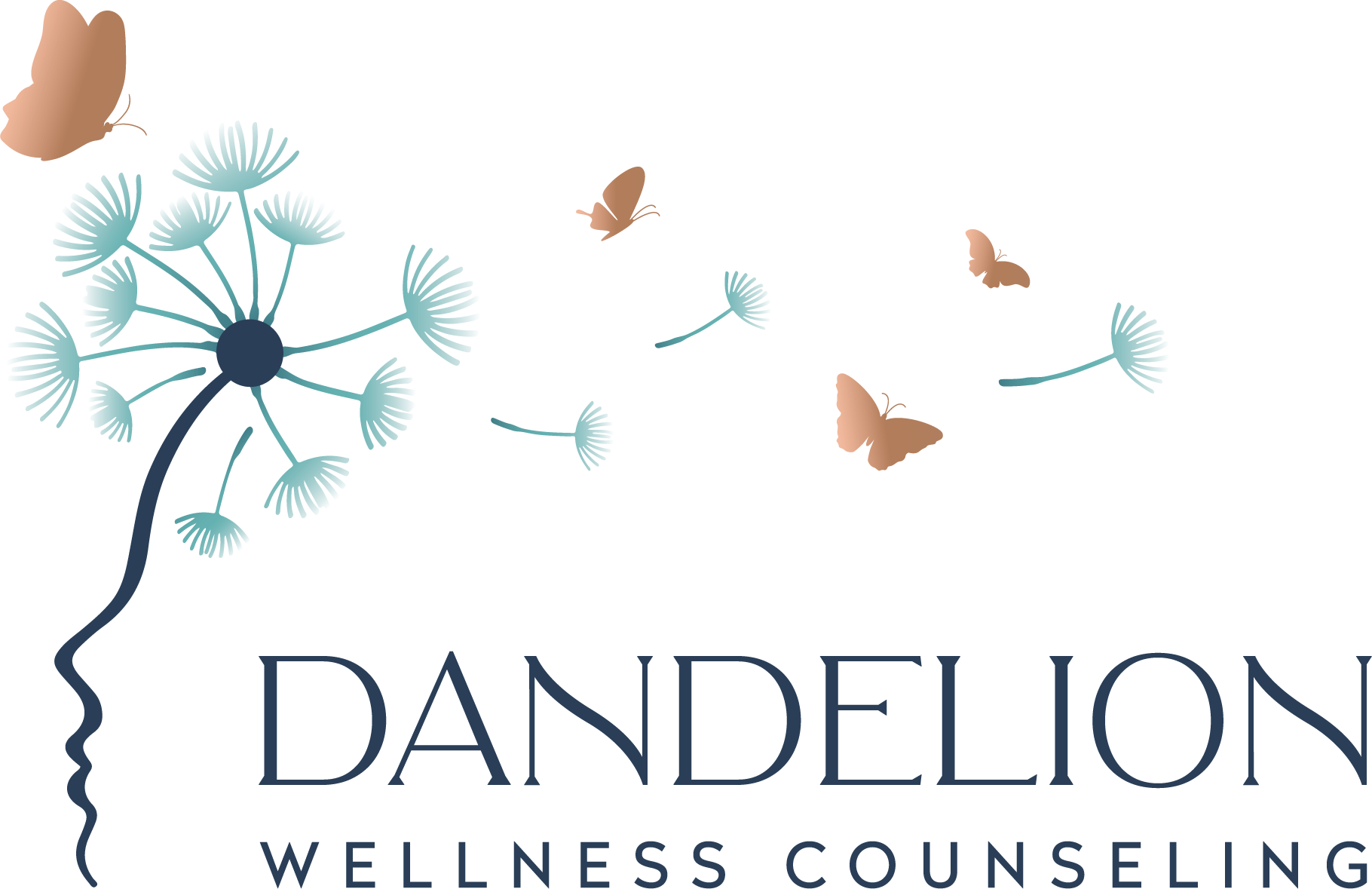How Grief Counseling Can Help You Heal After Loss
Grief is one of the most profound human experiences, yet it is often misunderstood. When we lose someone or something significant in our lives, the emotional impact can feel overwhelming. Whether it’s the passing of a loved one, the end of a relationship, or another major loss, grief can bring waves of emotions—sadness, anger, guilt, confusion, and even relief—all of which are valid.
But navigating grief alone can be difficult. The grieving process doesn’t follow a straight path, and sometimes, it may feel like time isn't easing the pain at all. This is where grief counseling can make a meaningful difference.
At Dandelion Wellness Counseling, we specialize in helping individuals process loss in a healthy, constructive way. Through evidence-based techniques like Cognitive Behavioral Therapy (CBT) and Acceptance and Commitment Therapy (ACT), our compassionate counselors provide the guidance and support needed to heal.
In this article, we’ll explore how grief counseling can help you navigate loss, manage overwhelming emotions, and move toward a place of healing.

Understanding Grief and Its Impact
Grief is often associated with the death of a loved one, but it can also arise from many other losses, such as:
- The end of a relationship or divorce
- Losing a job or career change
- A major life transition, such as moving to a new place
- Loss of health due to illness or injury
- The passing of a pet
While grief is a natural response to loss, it can affect people in vastly different ways. Some individuals experience intense sadness, while others may feel numbness or even guilt for not grieving in the way they expect. It’s important to recognize that there is no "right" or "wrong" way to grieve.
Common Emotional and Physical Symptoms of Grief
Grief can manifest in many ways, including:
- Emotional: Sadness, anxiety, guilt, anger, irritability, loneliness
- Cognitive: Difficulty concentrating, racing thoughts, forgetfulness
- Physical: Fatigue, headaches, stomach issues, appetite changes
- Behavioral: Withdrawing from social activities, changes in sleep patterns, loss of motivation
If these symptoms persist or make daily life difficult, grief counseling can help by providing structured support to work through the emotions in a healthy way.
How Grief Counseling Works
Grief counseling is a form of therapy designed to help individuals process their loss, express their emotions, and develop coping strategies. It provides a safe, non-judgmental space to explore feelings and work toward healing.
What to Expect in a Grief Counseling Session
At Dandelion Wellness Counseling, we tailor each session to meet the individual’s unique needs. Here’s what you can expect in a session:
- Exploring emotions and memories: Talking about your loss and how it has impacted your life.
- Identifying negative thought patterns: Understanding how certain thoughts may be increasing emotional distress.
- Developing coping strategies: Learning techniques to navigate grief triggers and build emotional resilience.
- Creating a meaningful connection to the loss: Finding ways to honor and remember your loved one in a healthy way.
Therapy Techniques Used in Grief Counseling
We incorporate evidence-based approaches, including:
- Cognitive Behavioral Therapy (CBT): Helps identify and change negative thought patterns related to grief.
- Acceptance and Commitment Therapy (ACT): Encourages individuals to accept difficult emotions while taking steps toward healing.
- Mindfulness Techniques: Teaches grounding exercises to manage overwhelming emotions.
- Narrative Therapy: Helps individuals reframe their relationship with their loss in a meaningful way.
By using these approaches, grief counseling can help individuals find clarity, acceptance, and strength in their healing process.
When to Seek Grief Counseling
Many people wonder if there’s a “right” time to start grief counseling. The truth is, there’s no set timeline for grief—everyone processes loss in their own way and at their own pace.
Signs That Grief Counseling May Be Beneficial
If any of the following apply to you, grief counseling may be a helpful resource:
- You feel stuck in your grief, unable to move forward.
- Your grief is affecting your daily life, work, or relationships.
- You’re experiencing intense emotions that feel overwhelming or unmanageable.
- You feel isolated or disconnected from others.
- You’re using unhealthy coping mechanisms, such as substance use or avoidance.
Whether your loss happened recently or years ago, seeking support is a sign of strength—not weakness.
Benefits of Professional Grief Counseling
While grief is a natural process, professional counseling provides structured support to help individuals heal in a healthy way.
1. Emotional Validation and Support
Talking to a trained professional allows you to express your emotions openly without fear of judgment. Many people feel relief simply by being heard and understood.
2. Developing Coping Strategies
Grief can bring waves of emotions that seem unpredictable. Counseling provides tools to cope with these waves in a way that promotes healing rather than suppression.
3. Addressing Complicated Grief
In some cases, grief can become “complicated” or prolonged, making it difficult to function. Counseling helps individuals work through deep-seated emotions and regain control over their lives.
4. Learning to Navigate Grief Triggers
Certain events—such as anniversaries, holidays, or places—can trigger grief. Counseling helps prepare for these moments with practical coping techniques.
5. Creating a Meaningful Connection with the Loss
Many people fear that moving forward means forgetting their loved one. Grief counseling helps individuals find ways to honor and remember their loved one in a way that brings comfort rather than pain.
Addressing Complicated Grief
For some, grief becomes prolonged and overwhelming—this is known as complicated grief. It can involve persistent sadness, guilt, or an inability to function normally.
How Counseling Helps with Complicated Grief
- Identifying unprocessed emotions that may be blocking healing.
- Providing structured therapy techniques to work through intense grief.
- Helping individuals reconnect with life while still honoring their loss.
If you feel like grief has taken over your life, professional support can help you find balance.
Take the First Step Toward Healing
Grief is not something you have to face alone. With the right support, healing is possible.
At Dandelion Wellness Counseling, we provide personalized, compassionate grief counseling to help individuals process their loss and move forward in a healthy way. Whether you’re struggling with recent grief or carrying pain from a loss that happened years ago, we’re here to help.
Take the first step today. Schedule a session or contact us to learn more about how we can support you on your healing journey.
